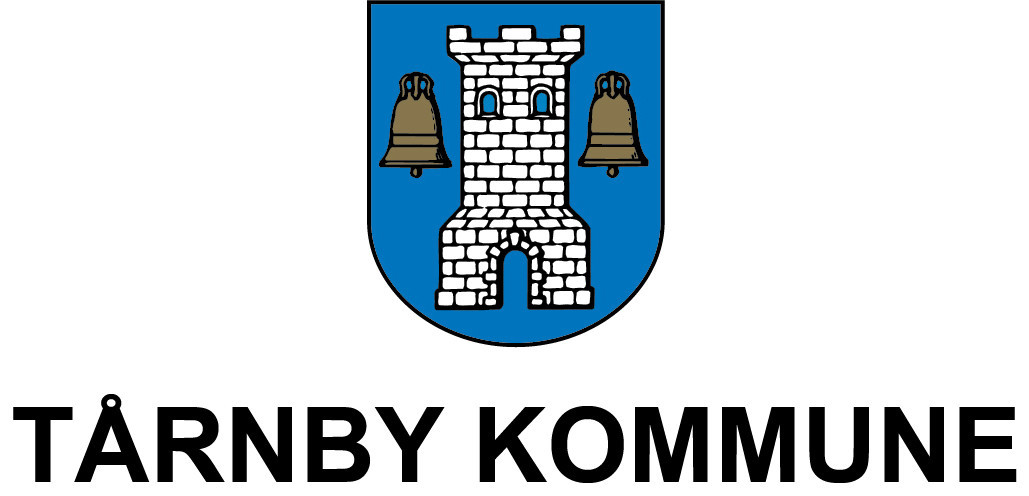Tax when working remotely if you live in Sweden and work in Denmark
Do you live in Sweden, work in Denmark, and sometimes work from home? Or do you normally work remotely for your Danish employer? In this article you can read more about tax when you work fully or partly remotely, when living in Sweden.
What applies if you work remotely?
The main rule is that you are taxed in Denmark if you work on site in Denmark, and in Sweden if you work in Sweden. You will never be taxed twice. If you work in Denmark and your salary is taxed there, you will not be taxed on it in Sweden, but you must provide information about your foreign income in your Swedish tax return.
However, if you work remotely, for example at home in Sweden or on business trips in other countries for your Danish employer, it may be the case that the salary for these particular days is taxed in Sweden instead. This depends on whether you are covered by the Öresund Tax agreement or not.
Please note that the rules on when you are covered by the Øresund Tax agreement will change from 1 January 2025. However, this will not affect your tax, annual statement and tax return for 2024, which you must submit in May 2025.
If you worked remotely in 2024

If you live in Sweden and commute to Denmark to work for a private Danish employer, the 2003 Öresund Tax Agreement applies. This means that you are taxed on your entire salary in Denmark, even if you work partly at home in Sweden or in other countries. In order to fulfill the conditions of the Öresund Tax Agreement, you must work in Denmark for at least 50% of your working hours during each three-month period. The rest of the time, you must work at your home in Sweden or on temporary business trips in Sweden or other countries. You should not work for your employer's permanent establishment in Sweden.
When calculating three-month periods, you should relate the number of working days in Denmark to the total number of working days in each three-month period. Holidays and sick days count as working days in Denmark. Working part of the day in Denmark counts as a full day in Denmark. The three-month periods are calculated on a rolling basis and can also start before and end after the end of the year. If at least half of the working days in a given three-month period count as working days in Denmark, the salary for the entire three-month period is taxable only in Denmark.
Read more about the Öresund tax agreement on the Swedish Tax Agency's website
Read more about tax and home working days on the Danish Tax Agency's website
Get the help tool to assess if The Oresund Agreement is applicable (in Danish)
What happens if you don't fulfill the conditions of the Øresund Tax Agreement?
If you work in Sweden for your Danish employer to a greater extent or in a different way than the Öresund Tax Agreement allows, the taxation of your salary and benefits must be divided proportionally between Sweden and Denmark on the basis of active working time in each country.
The part of the salary relating to active working time in Denmark is taxed in Denmark, and the salary for working time in Sweden and any other countries is taxed in Sweden.
Our guide 'Declaring in Sweden' provides information on how to declare when you have to pay tax on your Danish salary in Sweden.

If you live in Sweden, are employed in the public sector in Denmark and work wholly or partly from home, you are not covered by the 2003 Öresund Tax Agreement. In most cases, you are taxed in Sweden for the days you have worked in Sweden and in Denmark for the days you have worked in Denmark.
This means that the taxation of your salary and benefits should be allocated based on active working time in each country.
Our article "Declaring in Sweden" provides information on how to declare when you have to pay tax on your Danish salary in Sweden.
Read more on the Danish Tax Agency's website
Read our guide to declaring tax in Sweden
If you work remotely in 2025
Under the new Öresund Tax Agreement, which applies from 1 January 2025 onwards, your salary from employment in Denmark will only be taxed in Denmark as long as the working days in Denmark account for at least 50% of the total number of working days in each 12-month period. You can now work anywhere in Sweden (i.e. not just at home) and on occasional business trips. However, it is still a requirement that you do not work at your employer's permanent establishment in Sweden. The new Öresund Tax Agreement applies regardless of whether you are employed in the private or public sector.
For the purpose of calculating the 12-month periods, holidays and sick leave are counted as working days in the country of employment, Denmark. Part of a working day in Denmark counts as a full working day there.
The 12-month periods are calculated as rolling periods that can start in the previous calendar year or end in the following calendar year. Therefore, it is necessary to keep track of your working days not only in the current year, but also the year before and the year after.
Read more about tax and working remotely on the Danish Tax Agency's website
What happens if you don't fulfill the conditions of the Øresund Treaty?
If you work less than 50 per cent of your working days in Denmark, or otherwise do not meet the conditions of the Øresund agreement, you will be taxed in Denmark on the part of your salary that corresponds to your working hours there, and in Sweden on the rest of your salary.
Under the heading "What happens to preliminary tax" below, you can read more about the employer's obligation to deduct Swedish preliminary tax when the Öresund Tax Agreement does not apply.
Our guide 'Declaring in Sweden' provides information on how to declare when you have to pay tax on your Danish salary in Sweden.
What about the preliminary tax?
One of the new features of the new Öresund Tax Agreement, which will apply from 2025, is that a Danish employer who has an employee who works partly in Sweden, but still fulfills the requirements of the Öresund Tax Agreement, will not have to make any tax deductions on the salary for the work in Sweden.
This means that if you work partly in Sweden for your Danish employer in accordance with the Öresund Tax Agreement, you no longer need to apply for a preliminary tax assessment from the Swedish Tax Agency.
If you work in Denmark for less than 50 per cent of each 12-month period, or otherwise do not meet the requirements of the Øresund agreement, your Danish employer must register as an employer in Sweden and deduct preliminary tax from your salary for working days in Sweden. The employer must deduct Swedish preliminary tax at either 30 per cent of the salary, or as decided by the Swedish Tax Agency.
To ensure that the preliminary tax is as close as possible to the final tax, you can submit a request for a preliminary tax assessment, where you include the salary for the working days in Sweden. You will then receive a decision on what percentage your employer should deduct from your tax.
In order to avoid that Danish preliminary tax is withdrawn for salary that will be taxed in Sweden, you should also adjust the income in your Danish preliminary tax assessment (Forskudsopgorelse).
Read more on the Swedish Tax Agency website
What happens to social security?
Whether you are covered by social security in your country of residence (Sweden) or the country where you are employed (Denmark) will depend on how much you work in each country. When you belong to a country's social security system, it means that you are entitled to social benefits and earn public pension in that country. It also means that your employer is obliged to pay social fees in that country.
Read our article on social security when working in both Sweden and Denmark
What to consider as a cross-border commuter in relation to taxation
- Keep track of the number of days you work at home in Sweden and on business trips in countries other than Denmark.
- If you work partly in Sweden, you need to apply for an A1 certificate from the social insurance authorities. If you are to be covered by social insurance in Sweden, your entire salary must be pensionable in Sweden, and your Danish employer must pay Swedish employer's contributions.
- If you work in Sweden for your Danish employer in such a way that the Öresund Tax Agreement does not apply, your Danish employer must register as an employer with the Swedish Tax Agency, deduct preliminary tax for the days worked in Sweden, and submit an employer's declaration each month.
- You should also contact the Danish Tax Agency to adjust your preliminary tax assessment. The employer should not deduct Danish preliminary tax on these working days in Sweden.
If you need help in understanding the rules, please contact Øresunddirekt
Did you find this information relevant?
Do you want to elaborate?
We can help you
You are always welcome to visit our Information Center in Malmö to get help with your questions regarding working, moving or studying in Denmark.











